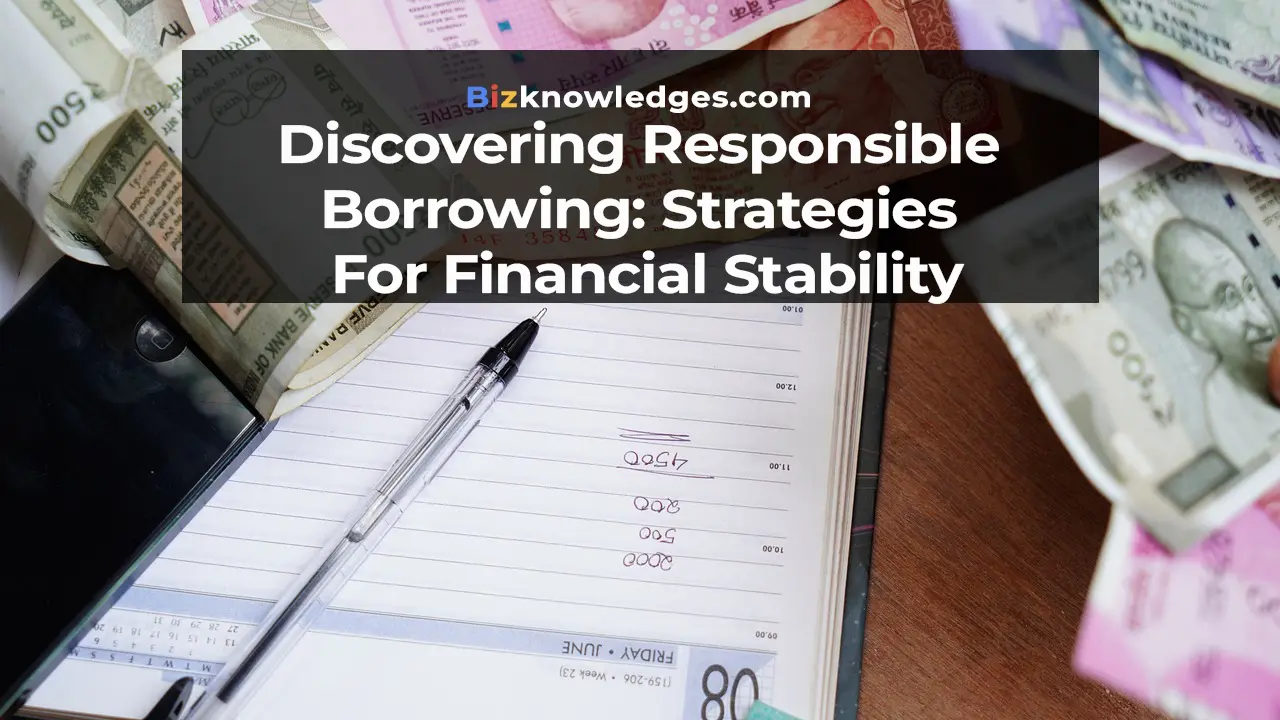Discovering Responsible Borrowing: Strategies for Financial Stability

Introduction to Responsible Borrowing
In the ever-evolving landscape of personal finance, responsible borrowing is a fundamental component for ensuring long-term financial stability. The ability to access loans is essential for many, yet the key lies in doing so wisely.
This involves a comprehensive understanding of the principles of borrowing wisely to avoid pitfalls like debt spirals and financial stress. Resources such as MaxLend underscore the importance of responsible lending by providing access to loans in a way that prioritizes consumer awareness and education. It’s crucial in today’s economy, where impulsive borrowing decisions can lead to significant financial challenges.
Responsible borrowing means finding a balance between the immediate need for funds and the current financial situation. It requires a methodical approach to deciding when and how to take on debt, only doing so when it’s manageable. The consequences of impulsive borrowing can be severe, often leading to a cycle of debt that’s challenging to break. As such, adopting a disciplined, informed stance on borrowing is not just recommended but essential.
Understanding Your Financial Needs
Before seeking any form of loan, it’s imperative to clearly identify and understand your financial needs. This process involves distinguishing between essential and non-essential expenses, forecasting upcoming financial commitments, and getting a grasp on your overall financial health. By systematically assessing financial needs, individuals can determine when borrowing is the appropriate decision. It points out that sometimes, alternative solutions, such as adjusting spending habits or increasing income, may be preferable to taking on new debts.
Budgeting Basics
Building a comprehensive budget is a cornerstone of managing financial obligations effectively. This critical tool involves tracking income and expenses to ensure that you’re living within your means and not overspending. Today, digital tools such as budgeting apps and spreadsheets are available that simplify this process, making it easier to maintain a thorough overview of one’s finances.
Understanding effective budgeting strategies is further emphasized by the Financial Literacy and Education Commission, which offers valuable insights and tips on improving financial skills. Through consistent budgeting, individuals can save for future expenses and stay on top of their fiscal responsibilities.
Exploring Different Types of Loans
An in-depth understanding of the various types of loans available is essential for making sound borrowing choices. Common loans like personal loans, payday loans, student loans, and mortgages each have specific attributes tailored to different financial needs.
For instance, personal loans are generally versatile and unsecured, making them suitable for varied purposes, while payday loans, though quick and accessible, come with high-interest rates and shorter repayment schedules. Hence, when deciding which type of loan to pursue, factors like interest rates, repayment terms, and the loan’s purpose must be considered. This approach enables borrowers to minimize financial risk and optimize benefits.
Evaluating Loan Offers
Evaluating loan offers is a critical step. It involves examining multiple aspects, such as interest rates, repayment terms, and any hidden fees. This ensures the loan aligns with your financial situation and long-term goals. Pay attention to the fine print and seek advice if the terms are unclear.
Finding genuine reviews and conducting thorough research cannot be understated, as they help avoid potential scams and fraudulent lenders. By practicing due diligence, borrowers can safeguard themselves and ensure that they make informed, beneficial decisions.
Benefits of Responsible Borrowing
Embracing responsible borrowing practices yields numerous long-term benefits. A major outcome is the improvement in credit scores, which opens doors to better interest rates on future loans and other financial opportunities. Moreover, managing debt responsibly lowers financial stress and enhances overall well-being as you maintain control over your financial destiny.
Reports from the Consumer Financial Protection Bureau further highlight the importance of ethical lending practices to foster sustainable borrowing habits. Ultimately, responsible borrowing serves as a pathway to achieving financial independence and peace of mind.
Real-Life Examples of Financial Success
Numerous individuals have successfully navigated the borrowing landscape by adopting sound strategies. Consider stories of those who wielded disciplined borrowing techniques to manage repayment schedules effectively and achieve financial stability.
These include instances where individuals successfully used loans to fund investments in education or businesses, leading to substantial returns over time. These real-world examples emphasize the benefits of thoughtful decision-making, illustrating how careful planning and prudent financial management can lead to significant successes and financial health.
Conclusion
Responsible borrowing remains a cornerstone of personal financial stability. By understanding personal needs, adopting effective budgeting practices, and carefully evaluating loan options, individuals can confidently navigate the complex financial landscape.
Such strategies not only ensure immediate financial health but also pave the way for a secure financial future. Remember, it’s essential to continually assess and refine your financial strategies to maintain stability and realize your financial objectives sustainably. Responsible borrowing is a lifelong practice fundamental to achieving and maintaining financial freedom.
